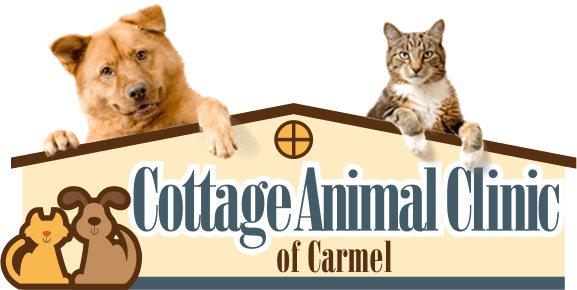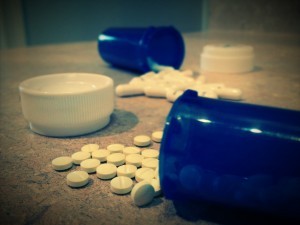THE TOP TEN PET POISON TOXICITIES FROM YOUR CARMEL ANIMAL HOSPITAL
As a Carmel animal hospital treating all sorts of pets, we see a lot of dog and cat owners come into us in a panic because their pet has ingested something that might be poisonous. While every case is unique depending on what toxin or poison was ingested, how much, and how big is the pet, here are the Top Ten Most Common Pet Poison Toxicities:
1. Prescription Human Medications. You are getting ready for work and accidently drop a pill on the ground and now its gone and your dog is looking guilty. Heart & blood pressure medications, pain pills, birth control pills, and anti-depressants are the most common types reported. If your pet ingests some of your prescription meds, call your Carmel animal hospital right away.
2. Over-the-counter Medications. Even though many prescription medications are generic over-the-counter, some of these can still cause significant harm to your pet. Tylenol (acetaminophen), Advil (ibuprofen), and Alleve (naproxen) are common OTC’s that can horrible organ damage and even death in our beloved pets. Always check with your Carmel animal hospital before administering any medications to your pet.
3. Veterinary Medications. Some veterinary drugs have flavoring added to them to make them easy to give. But that can also lead to an overdose when your dog eats them all at once. Another common mistake is accidental overdose by using the big dog’s meds on the little dog. Even worse, is using the dog’s medication on the cat. If you think your pet may be given an overdose call your Carmel animal hospital right away.
4. Insecticides. Insects are tough to get rid of and some of the chemicals use for insects can be harmful to pets. Again small dogs and especially cats are more sensitive to these toxins. Organophosphates and pyrethins are some of the most commonly used insecticides with pets. Always read the label thoroughly before allowing your pet to be exposed to any chemical, and search for organic or holistic alternatives when able.
5. Household Products. Many everyday products we keep under the sink, in the bathroom, basement, or garage are potentially toxic to our pets. Everything from detergents, toilet bowl cleaner, antifreeze, drain clog removers, glue, to batteries, pennies, and firestarter logs can be poisonous to pets. Some can cause only mild GI upset with vomiting, diarrhea, and not eating. Others can require surgery to correct. So take a minute to walk or should I say crawl through you house and make sure everything is “puppy proofed” as much as possible.
6. Human Food. Some people food can be tolerated well by our pets, while others can be toxic. Bread dough, grapes, raisins, onions, garlic, avocados, alcohol, and macadamia nuts are a few. A new very frequent toxicity is the sugar-substitute xylitol. Xylitol is found by itself for baking, but more commonly in sugar-free products such as gum and candies. Check the back of your gum package to determine if the sweetener used is xylitol. It can cause potentially life-threatening low blood sugar and liver damage. I always recommend feeding your pets their pet food and veterinary approved dental treats only.
7. Chocolate & Caffeinated Products. Dogs love chocolate just like us but can’t process the chemical in it along with caffeine as well. This gets its own category because it is so common. Too much chocolate causes vomiting, diarrhea, heart problems, and potentially seizures.
8. Plants. Many will cause a mild upset belly, but a few are deadly. Sago palm, lilies, yews, Oleander, philodendrons, and spring bulbs are just a few of the toxic plants you should avoid.
9. Rodenticides. Mice and rat poisons are meant to kill other mammals so are often more deadly than the insecticide poisons. If you suspect a rodent poison toxicity, always bring the packaging or bait with you to your Carmel animal hospital to help determine which type of poison was ingested.
10. Lawn & Garden Chemicals. Fertilizers are often made of materials that are attractive to dogs such as: bone meal, dried blood, and manure. Slug bait can be toxic. Coccoa mulch contains chocolate and should not be used in any area where dogs are allowed.
If you suspect a pet poison toxic exposure, call Animal Poison Control or your Carmel animal hospital right away. Time is critical to prevent as much absorption and damage as possible. Keep your pills secure, your purse hung up high, and pet proof your house and yard to prevent toxic exposure in the first place. For more information on our Caring Hands Compassionate Hearts, click on this link to our Carmel Animal Hospital.







